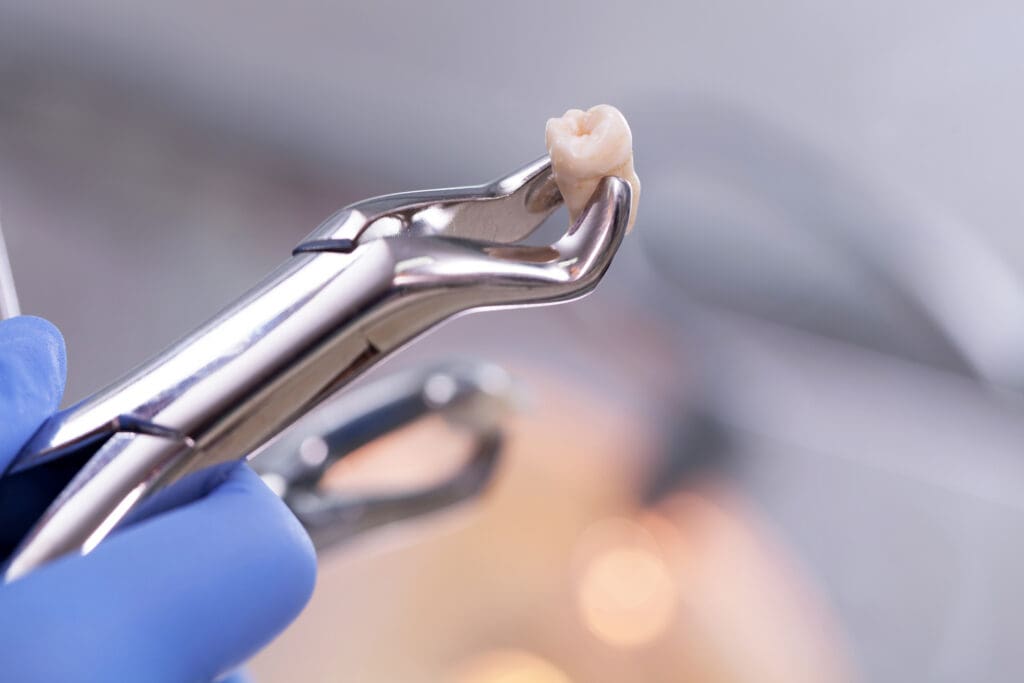Getting a tooth pulled might sound scary, but sometimes it’s the best option for your dental health. Knowing when you might need a tooth extraction can help you feel more prepared and less worried. Let’s break down some common reasons why dentists recommend tooth extractions.
When You Might Need a Tooth Pulled
1. Severe Tooth Decay
Tooth decay happens when bacteria eats away at your tooth’s structure. If the decay reaches the inner part of the tooth, it can cause a lot of pain and even lead to an abscess. An abscess is a painful infection that forms at the root of the tooth.
If the infection is too severe, a root canal might not be enough to fix it. In these cases, your dentist might suggest pulling the tooth to stop the infection from spreading to other parts of your mouth or body.

2. Gum Disease (Periodontal Disease)
Gum disease starts as inflammation in the gums. If it’s not treated, gingivitis can get worse and turn into periodontal disease. This affects the bones and tissues that hold your teeth in place.
Over time, the gums pull away from the teeth and create pockets where bacteria thrive. This can lead to bone loss and make your teeth loose. If the teeth become too loose or the damage is too severe, your dentist might recommend pulling the tooth. This will protect the rest of your mouth and even slow down gum disease.
3. Impacted Wisdom Teeth
Wisdom teeth are the last set of molars to come in. They usually erupt in your late teens or early twenties. Sometimes, there isn’t enough room in your mouth for them to grow in properly. When this happens, they can get stuck under the gums or pushing against other teeth.
Impacted wisdom teeth can cause pain, swelling, and even infections. They can also damage nearby teeth or cause cysts to form. To avoid these problems, dentists often recommend removing impacted wisdom teeth.
4. Overcrowded Teeth
If your mouth is too small for all your teeth, they can become overcrowded. This can make your teeth crooked or misaligned, which makes them harder to clean and more likely to get cavities or gum disease. Sometimes, dentists or orthodontists will recommend pulling one or more teeth to create space. This can help the rest of your teeth line up properly and make it easier to keep your mouth clean.
5. Trauma or Injury
Accidents happen, and sometimes teeth get badly damaged. It might not be possible to save a cracked or broken tooth below the gum line. In these cases, your dentist might suggest pulling the tooth to prevent further problems. Removing a damaged tooth can also make room for a replacement, like a dental implant or bridge.
6. Risk of Infection
Even a small dental problem can turn into a serious infection for patients with weakened immune systems. Especially for those undergoing chemotherapy or organ transplants. To reduce this risk, dentists might recommend pulling teeth that are at risk of causing problems. This can keep you healthier during your treatment and recovery.
What Happens After a Tooth Extraction?
After a tooth is pulled, your dentist will give you instructions on how to care for the area while it heals. This usually includes:
- Avoiding hard or crunchy foods for a few days
- Keeping the area clean to prevent infection
- Taking pain relievers if needed
In some cases, your dentist might recommend replacing the extracted tooth with a dental implant, bridge, or denture. This can help restore your smile and keep your other teeth from shifting out of place.
Is a Tooth Extraction Right for You?
If you’re dealing with severe tooth decay, gum disease, or other dental problems, a tooth extraction might be the best solution. At Slate Dental, we’ll work with you to determine the best course of action for your smile. Our goal is to preserve as much of your teeth as possible, but sometimes an extraction is necessary to protect your health.
If you think you might need a tooth extraction or just want to talk about your options, we’re here to help. Contact Slate Dental today to schedule a consultation. We’ll take the time to explain your situation and help you make the best decision for your smile and health.
While the idea of getting a tooth pulled might seem intimidating, it’s often the best way to protect your oral health. Whether you’re dealing with decay, gum disease, or an impacted wisdom tooth, an extraction can help prevent bigger problems down the road. Don’t wait to reach out to us today at (425) 584-3751 and take the first step toward a happier smile.
